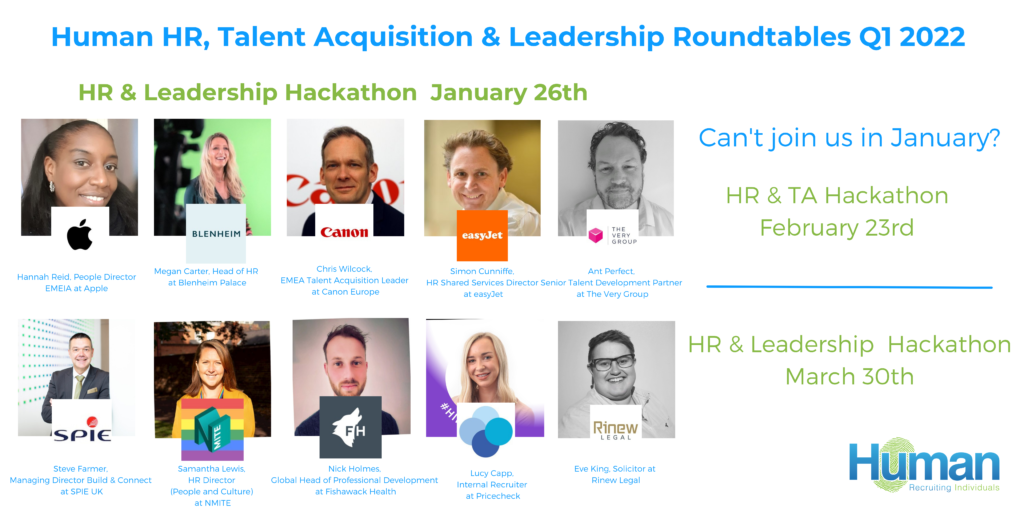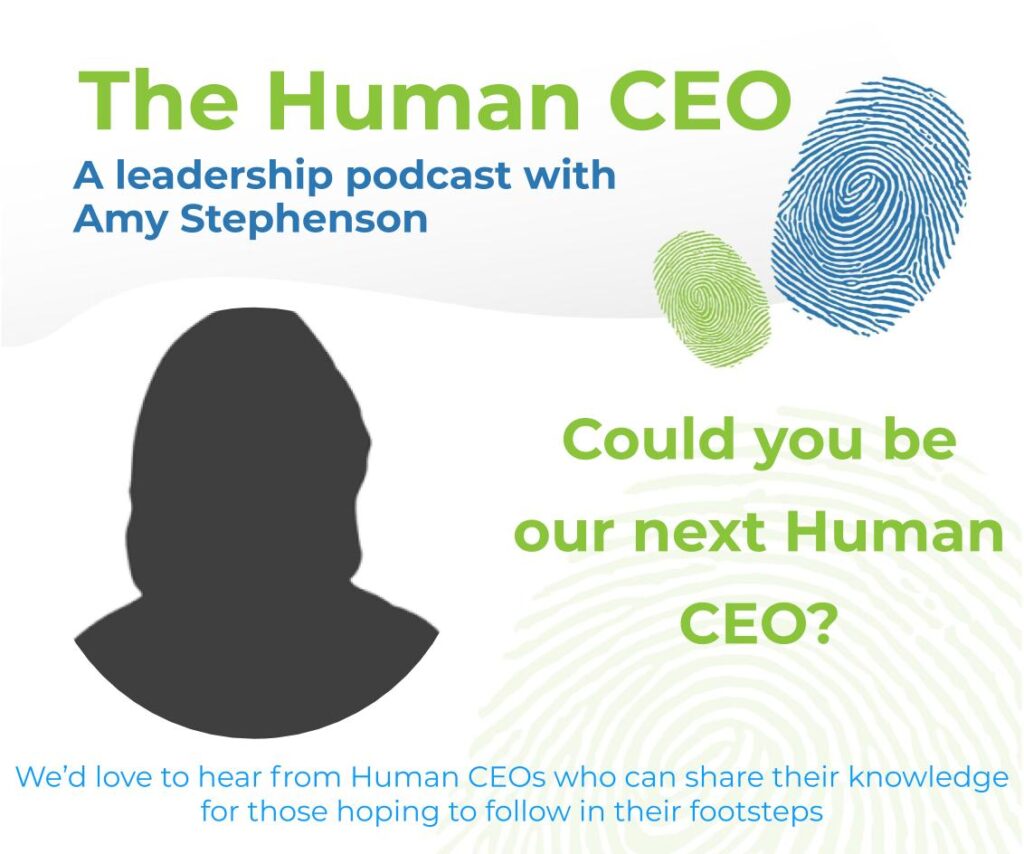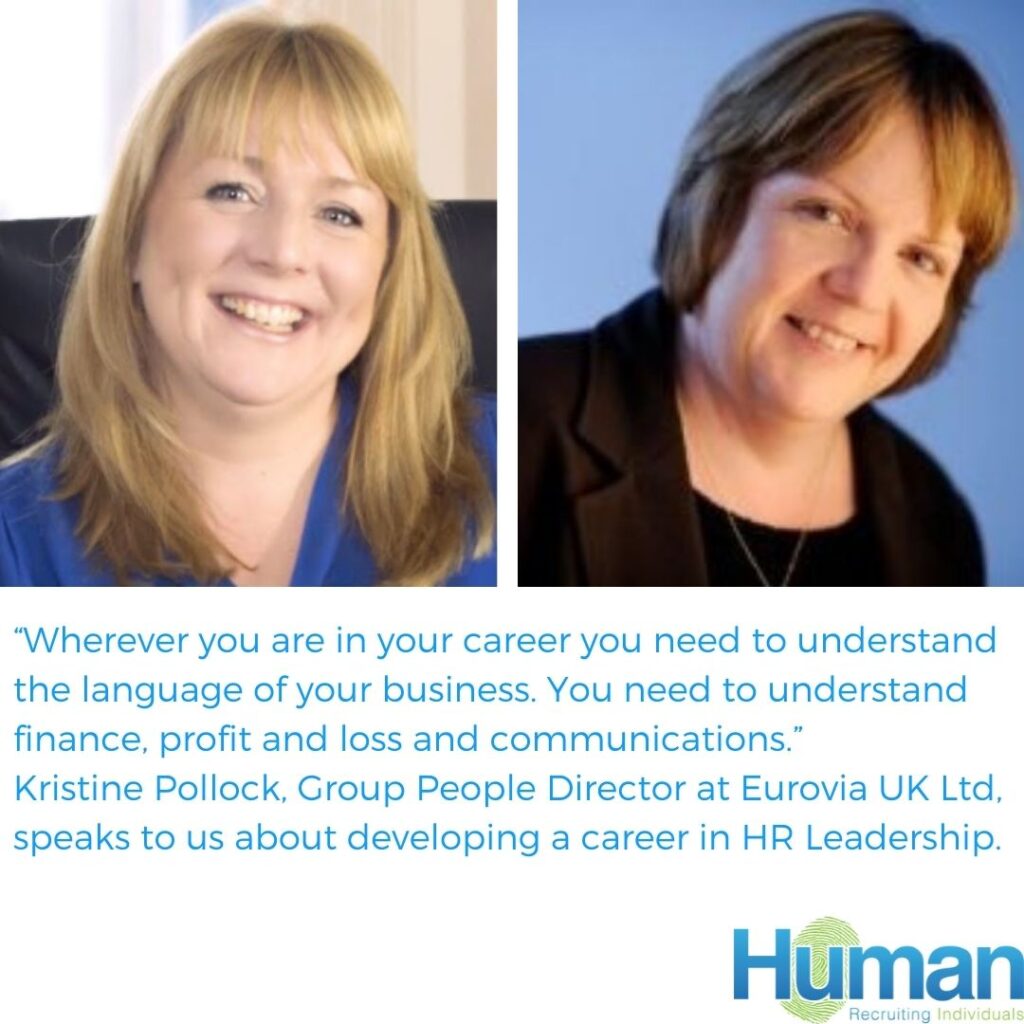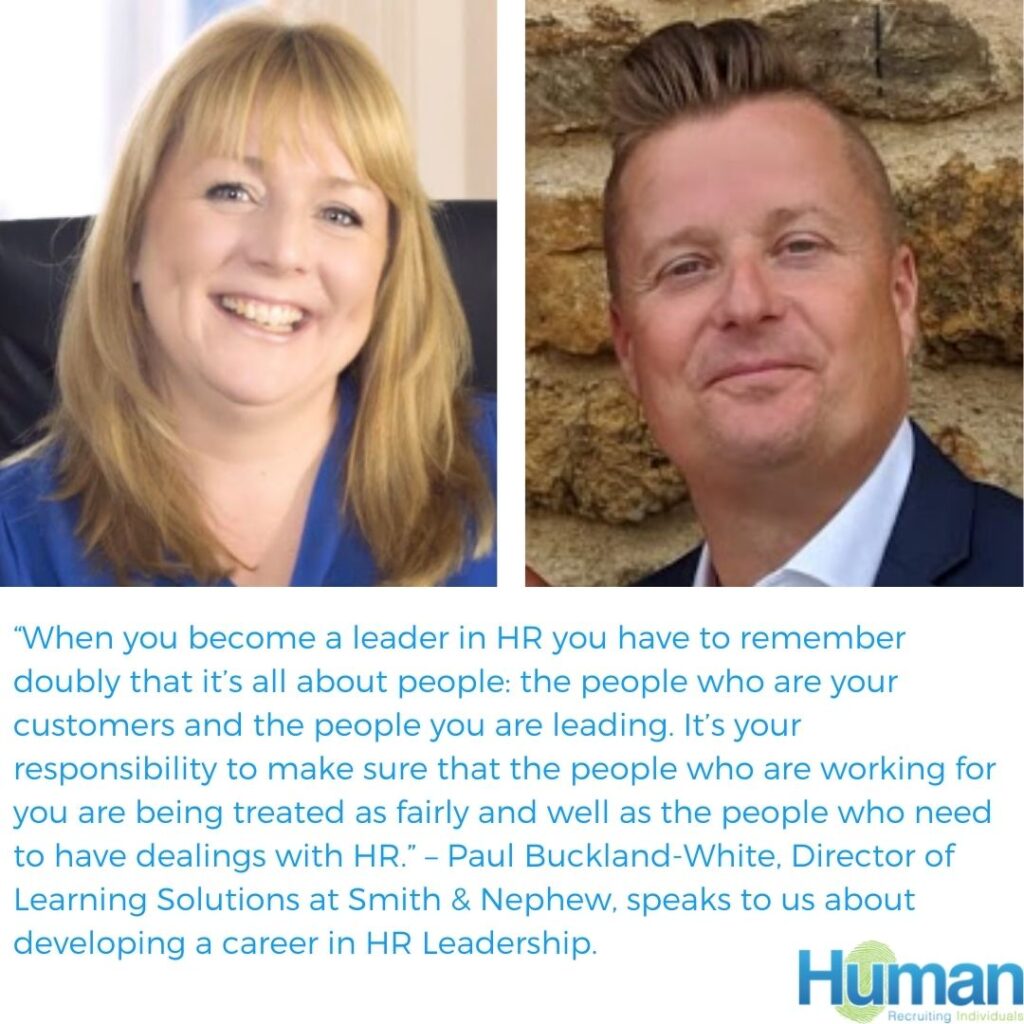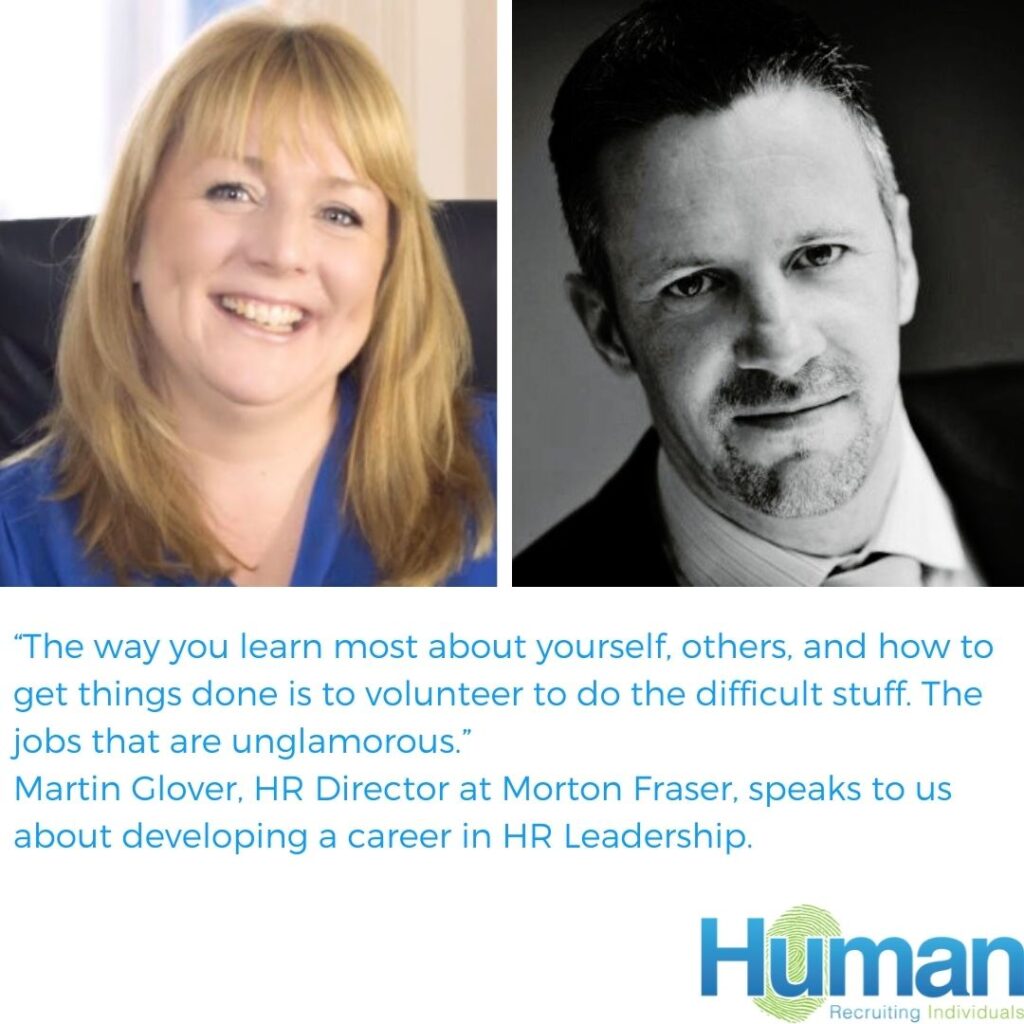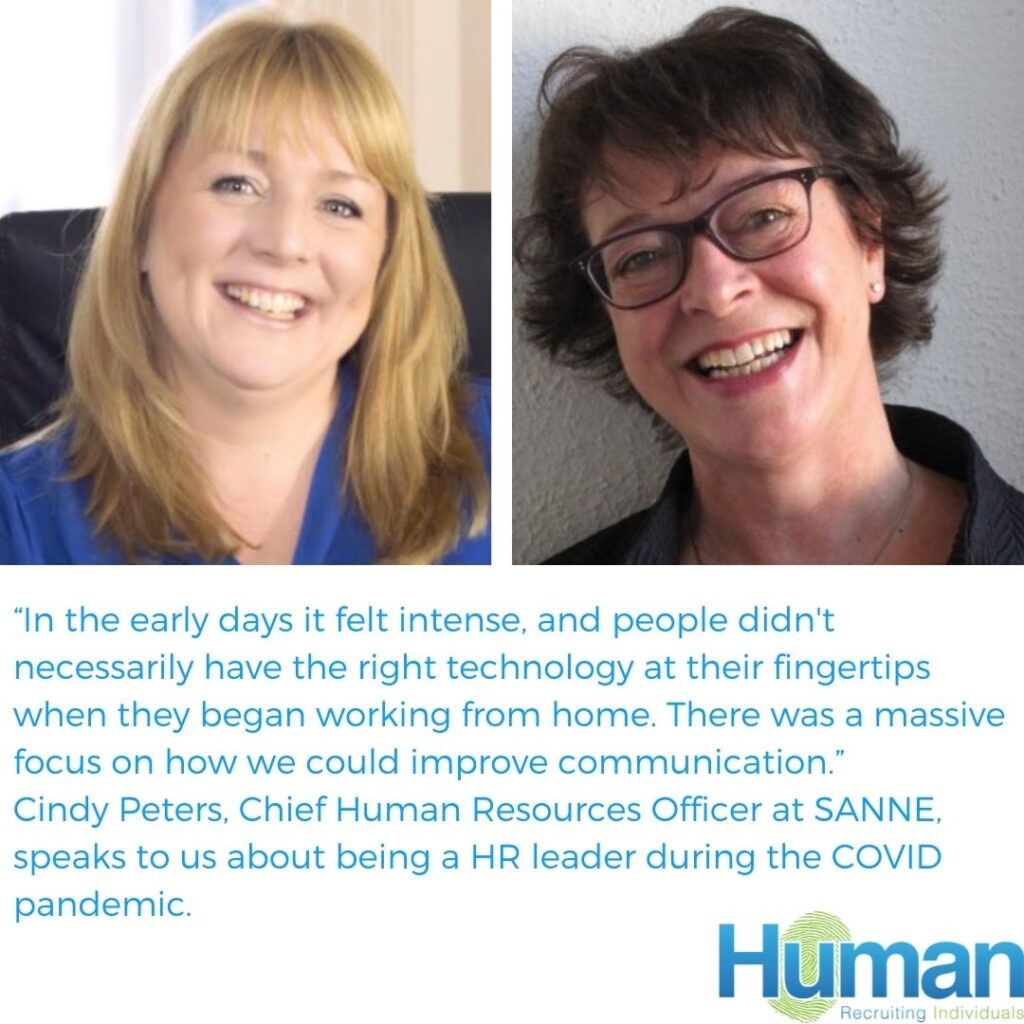“The way you learn most about yourself, others, and how to get things done is to volunteer to do the difficult stuff. The jobs that are unglamorous.” – Martin Glover, HR Director at Morton Fraser, speaks to us about developing a career in HR Leadership. As part of our commitment to supporting candidates to develop fulfilling careers, we’ve invited some HR Leaders to share the secrets of their success. This week, we had a great conversation with Martin Glover, whose career began at the NHS, where he progressed to HR Director level. In 2000, Martin left the NHS to become HR Director at Residence International, a European 5* hotel group, before switching sectors to join AEGON Scottish Equitable in 2001. Martin spent 9 years at AEGON in the roles of HR Manager, Head of Employee Relations / HR Business Partner, and Head of Corporate HR and Group Head of Organisational Effectiveness. After leaving AEGON, Martin spent time in the role of Global Head of HR and OD at GE Oil and Gas before he joined The City of Edinburgh Council in 2013 as Head of HR Business Partnership and Transformational Change. He remained at the council for almost four years, transitioning into the role of Interim Head of Human Resources and Organisational Development. In 2016, Martin became Global Head of HR and OD at Wood MacKenzie. He joined Morton Fraser in his current role as HR Director in December 2017. Can you tell us how you got into HR and why? I didn’t wake up one day and think, ‘wow I’d love to work in HR’. Rather I fell into it while pursuing a career in finance at the NHS. My role involved working on the expenses for staff travel so I worked very closely with the HR department. Over time, I became much more interested in what they were doing and I was able to transition internally into the HR team. There have been several moments in my career when I felt I knew HR was the right profession for me. One was in my early days in HR at the NHS. I was let loose on some of the ‘safer’ aspects of dealing with people, such as HR administration and running induction programmes for new joiners. I particularly enjoyed welcoming new recruits into the organisation, telling them about the history of the organisation and giving them advice and guidance. I got a buzz from standing up in front of a room of people and the positive feedback I received really built my confidence. That’s where my career very humbly started out. Since then, I’ve worked for a variety of different industries including hospitality, the public sector, oil and gas and legal. Some organisations (and recruitment agencies) are much more insightful about people making cross-industry transitions than others. In some cases, companies only want people who’ve worked in their industry already, but others deliberately seek out people with alternative backgrounds. When I joined GE oil and gas, I was going to work in organisational development. They understood that an industry background didn’t add anything. They were interested in my ideas around leadership, culture and talent, not what I knew about sub-sea oil systems, for example. Can you tell me about the key themes and challenges that you’re seeing across the HR sector? There are three big things on my agenda, the first being diversity, inclusion and belonging. I’m really proud of the stuff we do at Morton Fraser on diversity and inclusion. Last year, 40% of our traineeships went to people from socially disadvantaged environments. The law as a doctrine is about the promotion of justice for all but it is dispensed by – it would seem from the outside – people who are very exclusive, typically white and male. Our board is very inclusive, so my job hasn’t been to create this inclusivity, it’s been to advertise it externally, to encourage people who previously might not have thought of joining us change their mind and consider our organisation. The second challenge is talent. How do we spot and retain the best talent for and within our business? How do we align people processes to the very best talent? By that I mean how do we ensure the biggest rewards, promotions and work opportunities go to the best talent. Additionally, while promoting and directing top talent, how do we also get the rest of our talented people to remain motivated, produce more and deliver well for our clients? What conversations do we need to be having with them so they still feel good about their contribution to the business? My third challenge is managing and driving performance. How do we equip managers and leaders in the business to have the right types of conversations with people that will have them motivated and doing their best work every day? Morton Fraser is my first role within the legal sector, but handling these challenges is something I’ve been doing for the last thirty years. What’s fascinating to me about all sectors, is that they all think they’re different, but in terms of people, actually they’re facing pretty much the same challenges. Fundamentally it isn’t any different in law than it is in the NHS, or oil and gas or hospitality. What career advice would you offer to someone either working towards a career like yours, or someone just getting started in their HR career? Most importantly, really understand your business. Understand how they make money, or in the case of a not-for-profit, how they service the needs of their clients. Understand where the business is at, get to know their pain points and issues, and be clear about what they are trying to achieve. Understand not only what the business priorities are, but why they are the priorities. Having that knowledge enables you to take your HR expertise and skills and apply it for the better performance of the organisation that you’re working for. Secondly, concentrate on how you add

